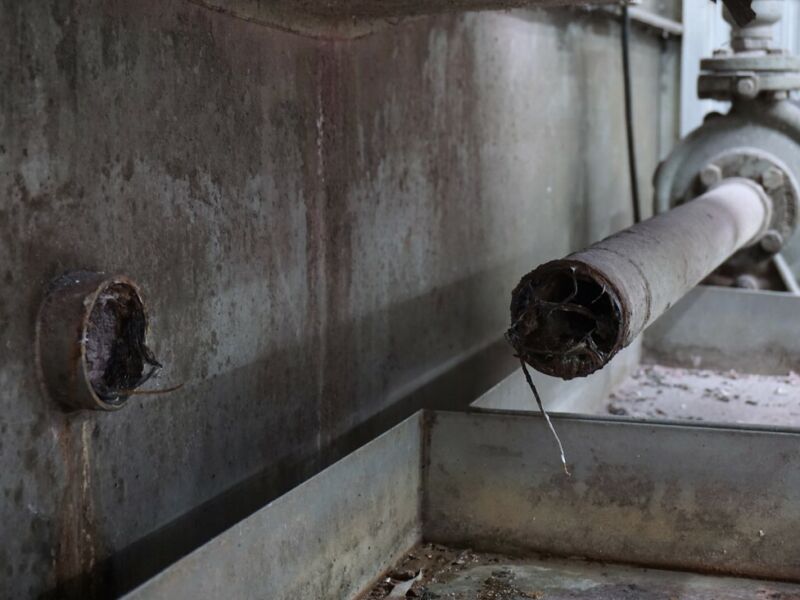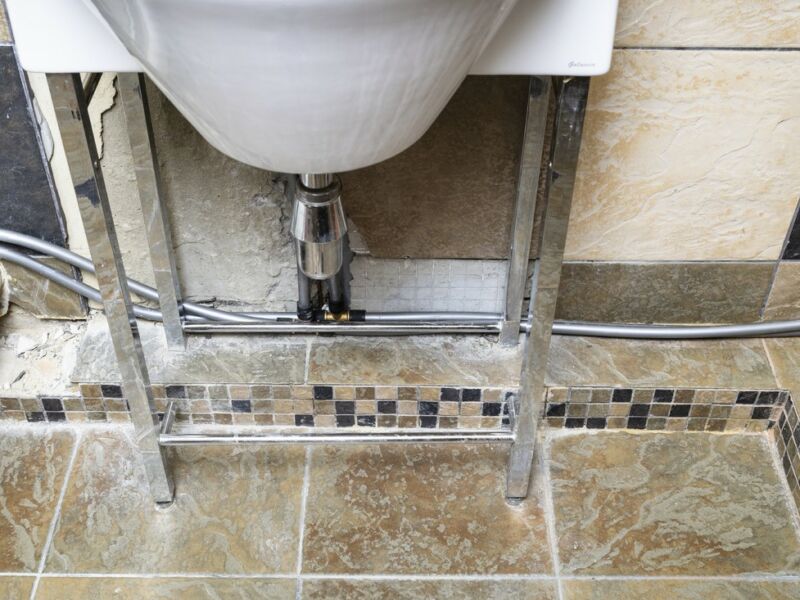
Introduction
Broken pipes can lead to various plumbing issues and significant water damage if not addressed promptly. Identifying the signs of broken pipes and taking appropriate action is crucial to prevent further damage and costly repairs. In this article, we will discuss different aspects of broken pipes, including signs, causes, and steps to address the issue effectively.
Common Signs of Broken Pipes
1. Water Leaks
One of the most apparent signs of broken pipes is water leaks. You may notice water seeping through walls, floors, or ceilings, either as droplets or in larger quantities. These leaks can occur in different areas of your property, such as the kitchen, bathroom, or basement.
2. Low Water Pressure
If you notice a significant decrease in water pressure, it could be a sign of a broken pipe. The pipe damage can disrupt the flow of water, leading to reduced pressure in faucets, showers, or toilets.

3. Discolored Water
When pipes break, it can lead to rust, sediment, or debris entering the water supply. If you observe discolored water coming out of your faucets, it may indicate a broken or corroded pipe.
4. Unusual Odors
Broken pipes can cause stagnant water to accumulate within walls or floors, leading to the development of mold or mildew. These growths often emit unpleasant smells. If you notice musty or foul odors in certain areas of your property, it could be a sign of hidden pipe damage.
5. Wet or Damp Areas
If you come across wet or damp areas in your home or building, it may indicate a broken pipe. These areas can be found on walls, floors, or ceilings and might feel cool or moist to the touch.
Causes of Broken Pipes
1. Freezing Temperatures
Extreme cold weather can cause pipes to freeze, leading to increased pressure and potential pipe bursts. The expansion of frozen water exerts considerable force on the pipe, causing it to crack or rupture.
2. Age and Corrosion
Over time, pipes can become weakened due to age and corrosion. Rust and deterioration can make them more vulnerable to cracking or leakage.

3. Water Pressure Issues
High water pressure can put excess stress on pipes, leading to damage over time. Additionally, water hammer—a sudden change in water pressure—can cause pipes to rupture.
4. Soil Shifting
Earthquakes or soil movement can disrupt the stability of underground pipes. This can result in cracks or breaks, leading to pipe damage.
5. Improper Installation
Incorrect pipe installation or the use of substandard materials can increase the risk of pipe failure. Faulty connections or weak joints are common issues that can lead to pipe damage.
Addressing Broken Pipes
1. Shut Off the Water Supply
In case of a burst pipe, it is essential to shut off the water supply immediately. Locate the main shut-off valve and turn it clockwise to stop the water flow.
2. Call a Professional Plumber
It is crucial to contact a professional plumber who specializes in pipe repair. They have the necessary knowledge, experience, and tools to accurately identify the source of the problem and provide effective solutions.
3. Assess the Extent of the Damage
The plumber will assess the extent of the damage and determine the best course of action. They may need to remove sections of damaged pipes and replace them with new ones.
4. Conduct Necessary Repairs
The plumber will proceed with repairs based on the type and severity of the pipe damage. This may involve fixing leaks, reinforcing weak joints, or replacing entire sections of pipes.
5. Take Preventive Measures
To prevent future pipe damage, consider taking preventive measures such as insulating exposed pipes, maintaining consistent water pressure, and scheduling regular plumbing inspections.
Important Facts and Statistics about Broken Pipes
– Recently, a water main repair in Brooklyn was completed on an emergency basis after it was discovered that the property owner’s water main was made of lead. This highlights the risk of water contamination in damaged pipes.
– Broken water pipes in plumbing systems can have various implications, including more than just a small leak. They can cause clogged drains, disrupted water pressure, and affect the functioning of other fixtures.
– The pressure from expanding ice is a significant cause of broken pipes. The expanding ice increases the pressure inside the pipes until they eventually rupture.
– Filing an insurance claim for a broken pipe may not always be the best option, depending on the circumstances. Consulting with an insurance professional can help determine the most appropriate course of action.
– Broken pipes can have ripple effects throughout a house, affecting the functioning of faucets, pressure valves, and other fixtures.
– Major environmental stressors like earthquakes can cause severe damage to pipes, especially for properties located near geological fault lines.
Frequently Asked Questions (FAQ)
What should I do if I find a broken pipe?
How can I prevent broken pipes?
Conclusion
Identifying signs of broken pipes and promptly addressing the issue is crucial to prevent further water damage and costly repairs. By being aware of common signs and causes of broken pipes, you can take the necessary steps to mitigate the damage and protect your property. Remember to consult a professional plumber for accurate diagnosis and effective repairs.



